Burmese farmers are reconnecting with their roots and strengthening Northeast Indiana’s food system
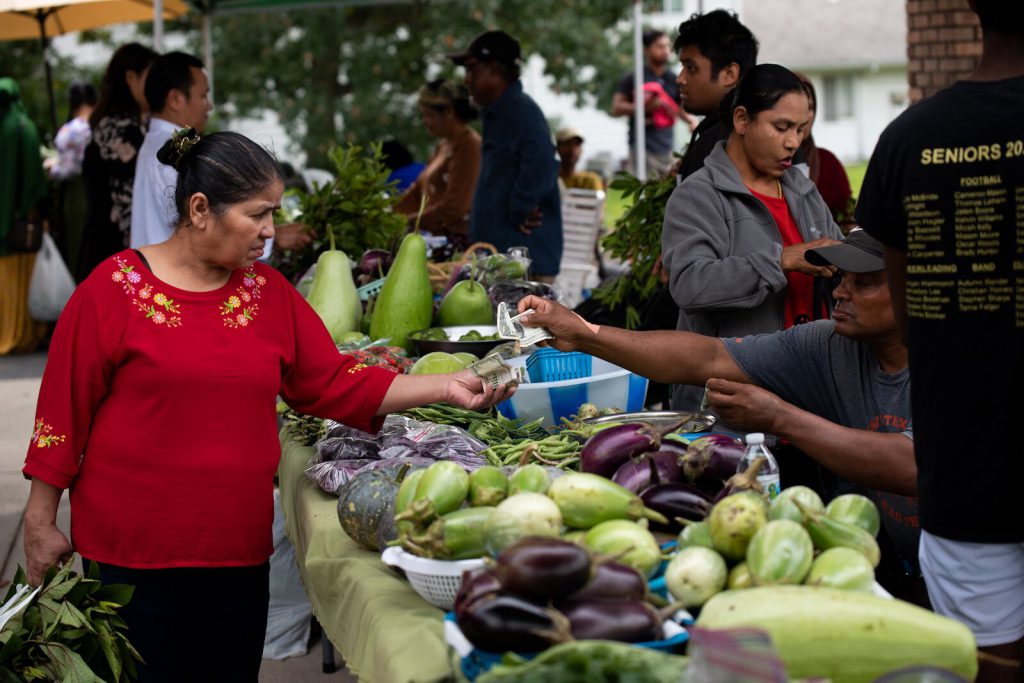
Originally Posted on Input Fort Wayne
BY KARA HACKETT, WITH REPORTING BY DESARAY BRADLEY | WEDNESDAY, OCTOBER 6, 2021
Every Sunday afternoon until the end of October, there’s a busy farmers market at the Fort Wayne League for the Blind and Disabled where many Burmese immigrants and refugees shop—even visitors from out of state.
Why?
This market sells food that’s primarily grown by Burmese farmers in Northeast Indiana. What’s more: It sells culturally relevant crops, like the herb, sour leaf, which is used in many Burmese dishes, yet can be difficult to find at Midwestern supermarkets.
As some will attest, sour leaf even “tastes better” when grown in Northeast Indiana soil and sunlight compared to other regions in the U.S.
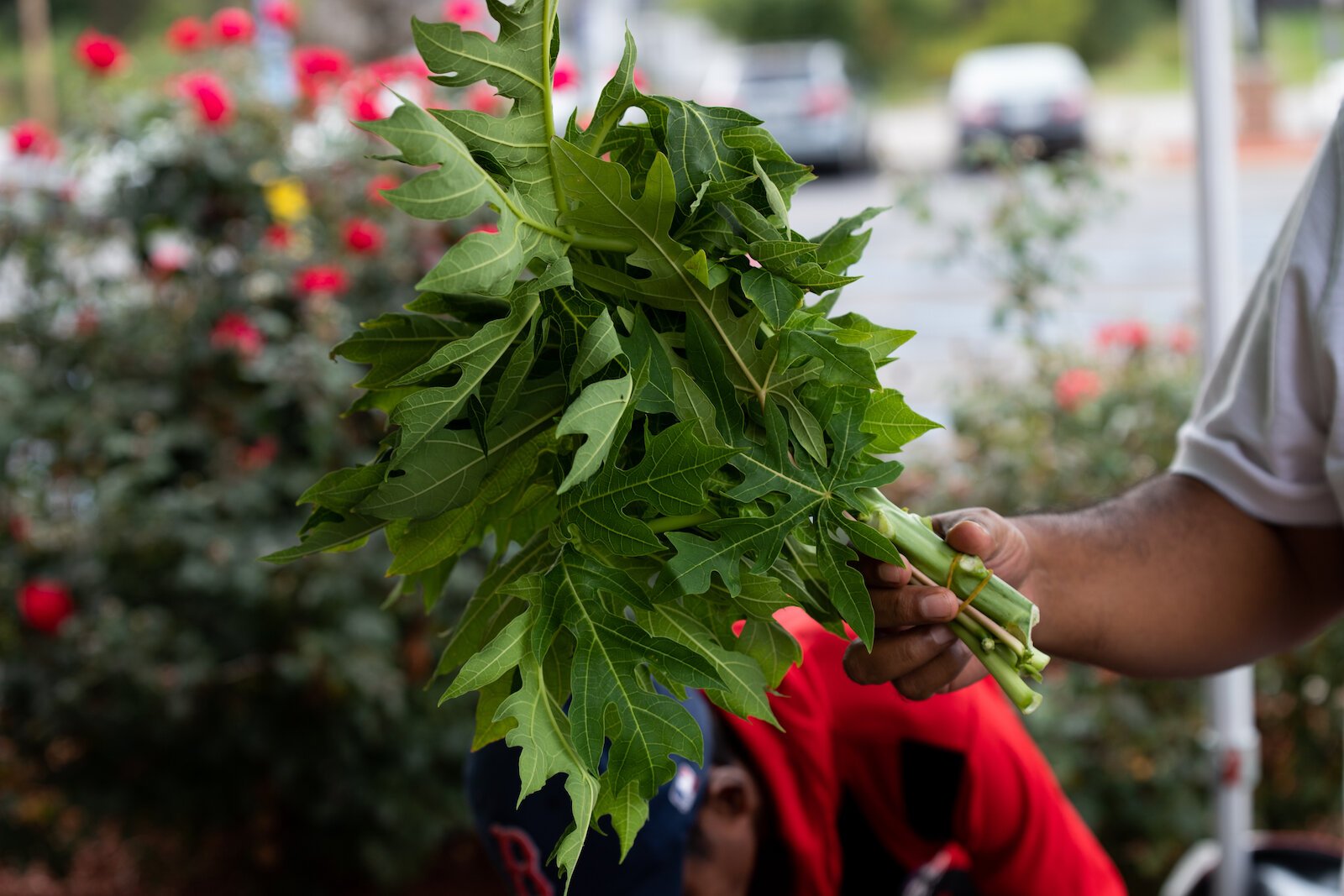 Sour leaf grown by farmers at the Rose Avenue Education Farm.
Sour leaf grown by farmers at the Rose Avenue Education Farm.
These are some of the surprising and “wildly successful” results local food advocate, Jain Young, is witnessing in her second year leading the Refugee Incubator Farm of Northeast Indiana at the Rose Avenue Education Farm.
An outgrowth of Young’s work strengthening regional food systems and farm jobs through efforts like the Plowshares Cooperative Food Hub, the incubator program is an education and career-building opportunity for would-be farmers rooted on 11-acres of land at 501 Rose Ave. in New Haven.
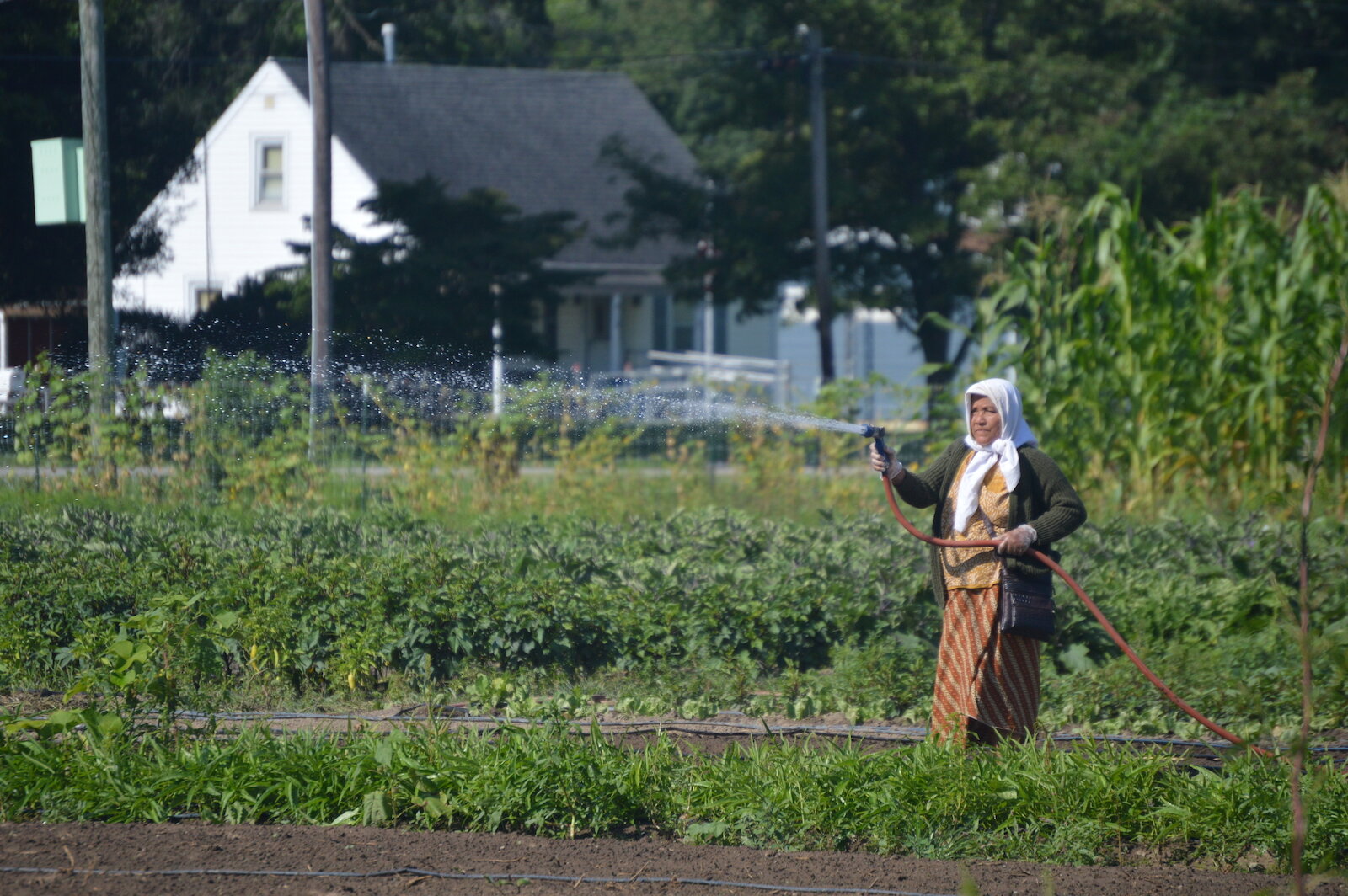 Farmers tend the land at the Rose Avenue Education Farm at 501 Rose Ave. in New Haven.
Farmers tend the land at the Rose Avenue Education Farm at 501 Rose Ave. in New Haven.
While an influx of new farmhands are needed to tend the growth of local food economies, finding talent that’s skilled and interested in farming can be challenging. Even so, Fort Wayne is home to more than 10,000 Burmese refugees and immigrants (the largest population outside the country of Burma), and Young has found that many of these neighbors have been displaced—not only from their home countries, but also from their agricultural roots.
“Many Burmese in Fort Wayne have been sort of shuffled into factory jobs when they arrive in the U.S. due to language and income barriers,” Young says. “But what we’ve learned through this program is that many of them would actually prefer to be farmers.”
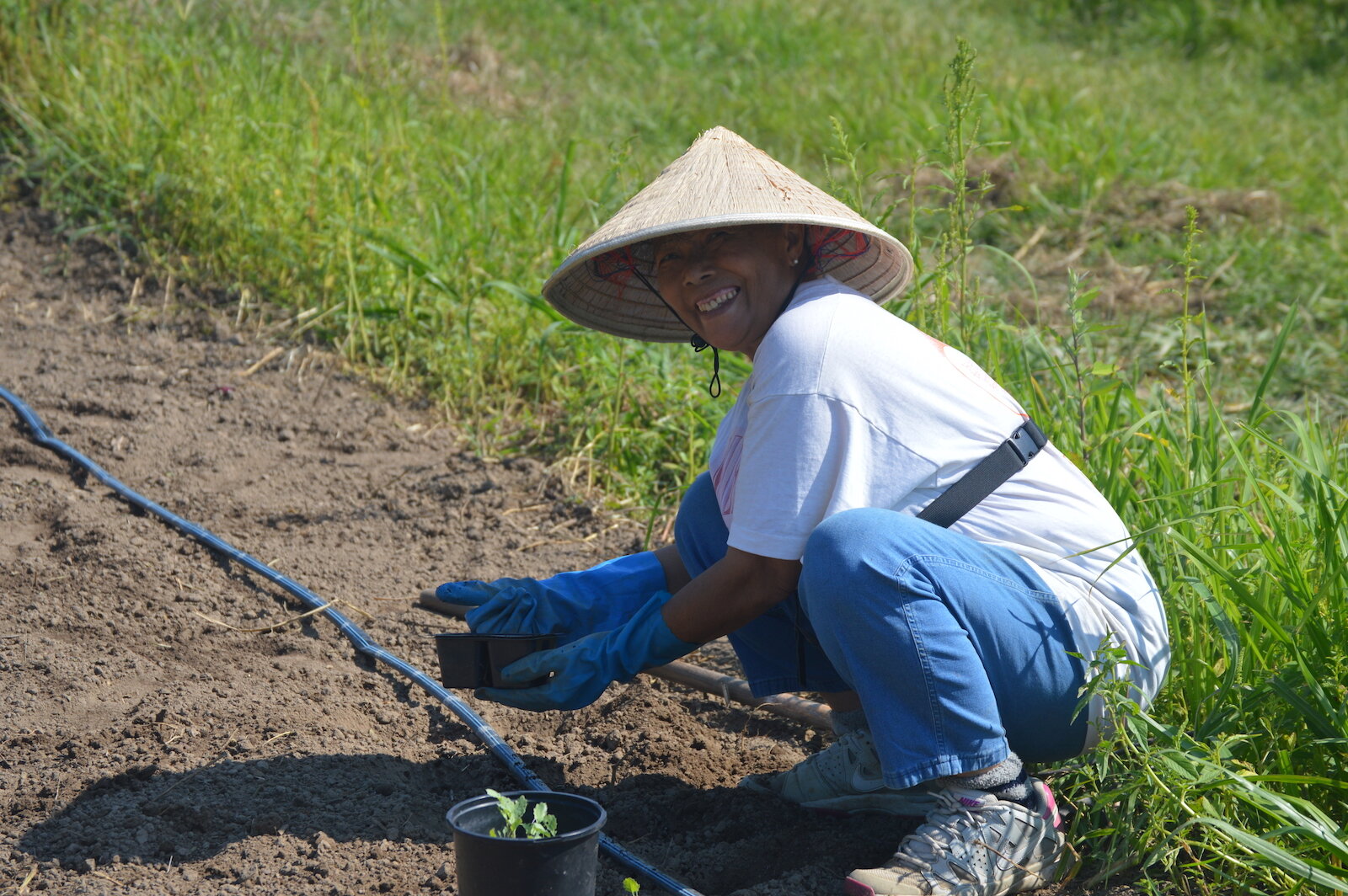 Farmers tend the land at the Rose Avenue Education Farm at 501 Rose Ave. in New Haven.
Farmers tend the land at the Rose Avenue Education Farm at 501 Rose Ave. in New Haven.
As part of its programming, Rose Avenue Education Farm connects each farmer, or farm couple, with a half-acre or single-acre plot of farmland to tend on its property. It also provides them with access to translators and instructors, like Master Gardeners, who can help them earn certifications, learn local weather patterns, and acquire other tools needed to succeed at farming in Indiana. All of the coursework is tailored to the unique characteristics of refugee populations, including their language, skills, agrarian backgrounds, health, and culture.
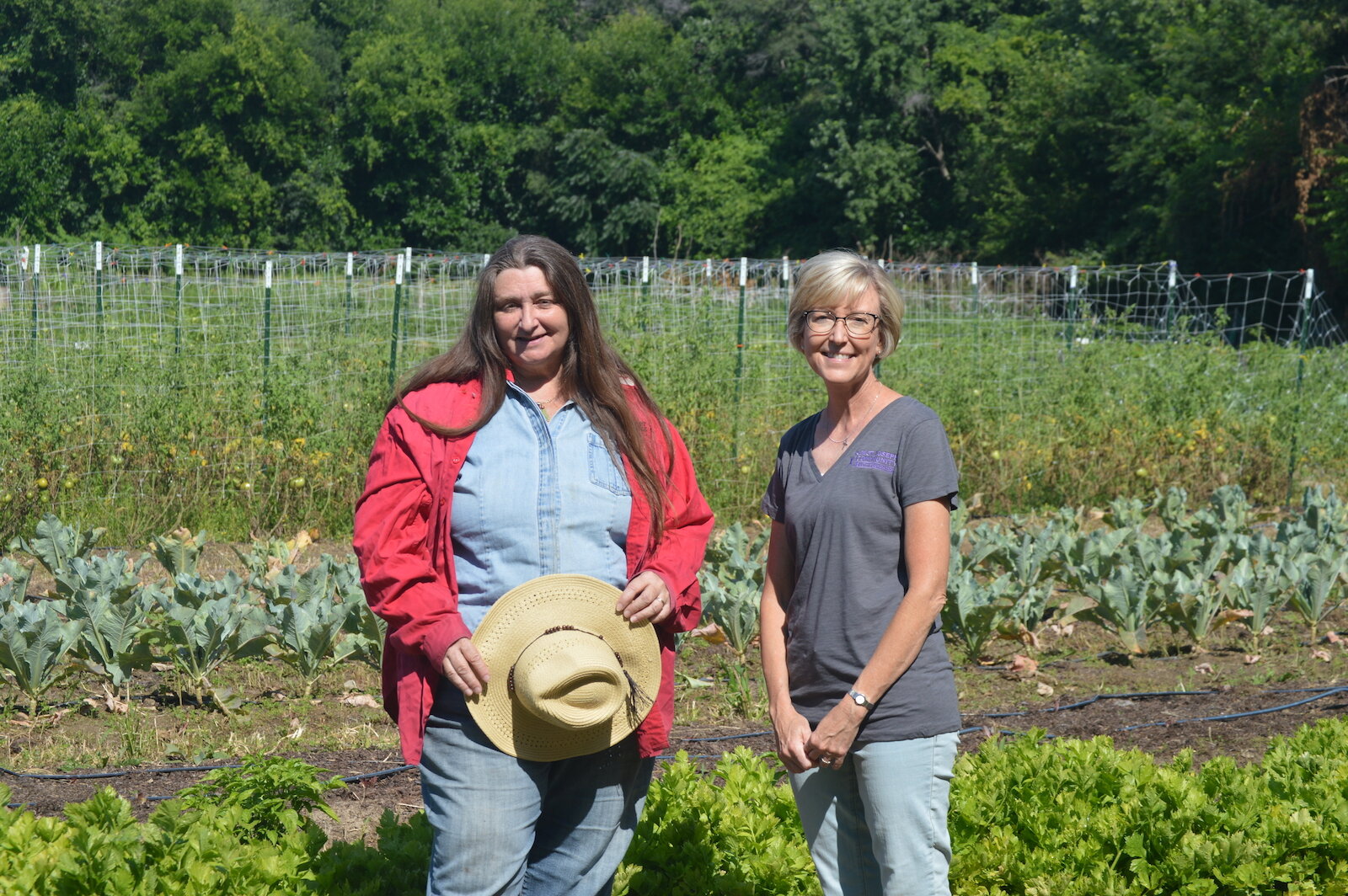 Mary Tyndall, right, is Double Up Program Manager & Chief Storyteller at the St. Joe Community Health Foundation. She poses with a Rose Avenue Education Farmer.
Mary Tyndall, right, is Double Up Program Manager & Chief Storyteller at the St. Joe Community Health Foundation. She poses with a Rose Avenue Education Farmer.
Rose Avenue Education Farm’s work is funded in-part by a three-year, $300,000 grant Young received through the U.S. Department of Health & Human Services’s Refugee Agricultural Partnership Project (RAPP). Young also received a donation of farmland from one of her nonprofit partners, Save Maumee Grassroots Organization, Inc. In addition to strengthening local food systems and creating value-adding jobs for workers, the program contributes to healthy, organic farming practices and natural ecosystem protection in Northeast Indiana.
 Farmers tend the land at the Rose Avenue Education Farm at 501 Rose Ave. in New Haven.
Farmers tend the land at the Rose Avenue Education Farm at 501 Rose Ave. in New Haven.
It also supports social mobility and wealth building in refugee communities. Since Rose Avenue Education Farm is funded by grants and donations, it invests most of its profits directly into farmers’ pockets, providing jobs with fair wages, which are rare in the food industry.
“So much of our food industry across the U.S. actually relies on slave labor, so that was one thing we were very careful about with this program and working intentionally with vulnerable populations,” Young says. “We want to not only be providing people with jobs in the farm sector, but also be teaching them how to be self-sufficient farm businesspeople.”
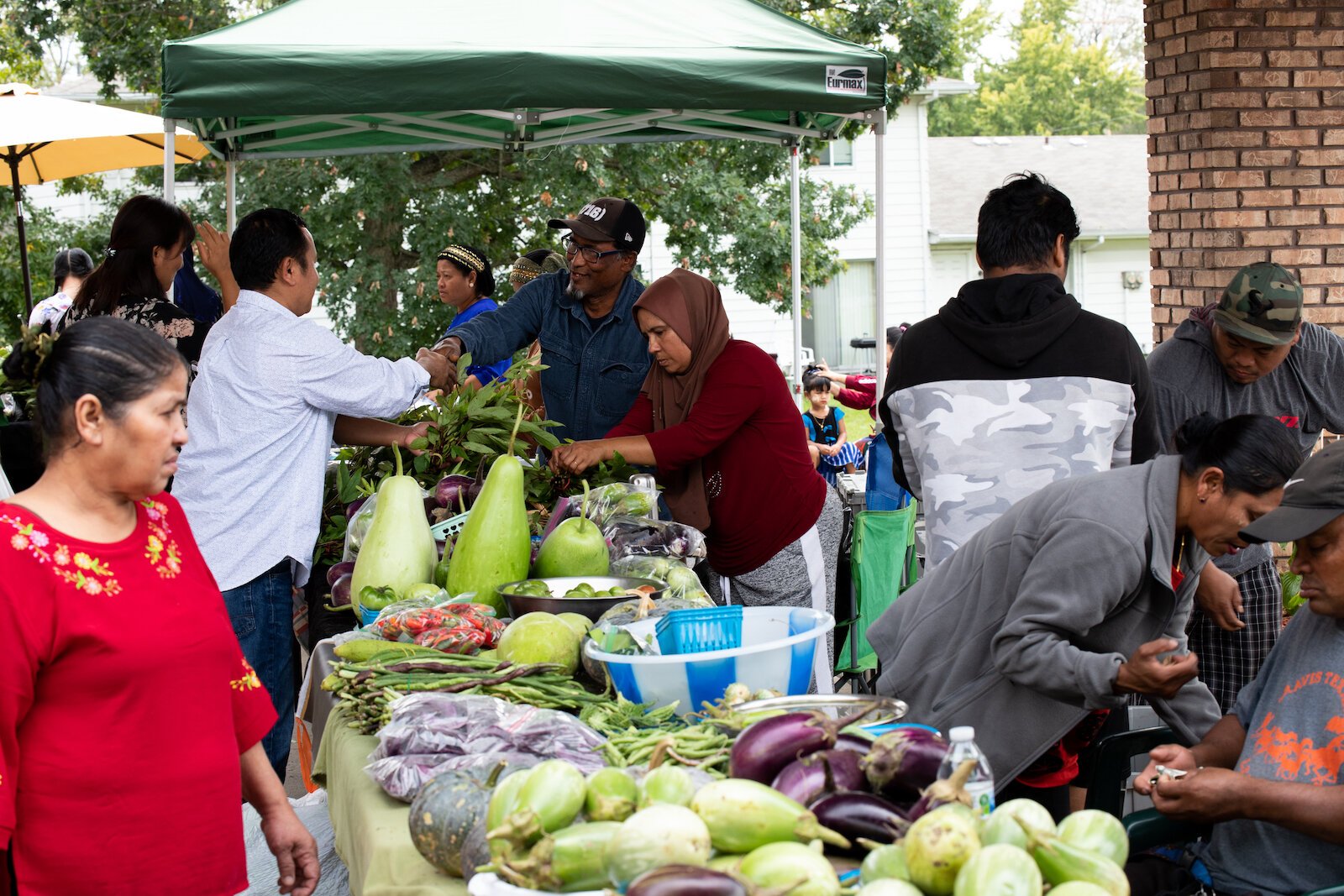 Rose Avenue Education Farm hosts a farmers market every Sunday at the Fort Wayne League for the Blind and Disabled at 5821 S. Anthony Blvd.
Rose Avenue Education Farm hosts a farmers market every Sunday at the Fort Wayne League for the Blind and Disabled at 5821 S. Anthony Blvd.
And when it comes to the business side of the operation, sales are steady—and growing.
“The last three to four weeks of the farmers market, we’ve doubled our EBT sales each week,” Young says.
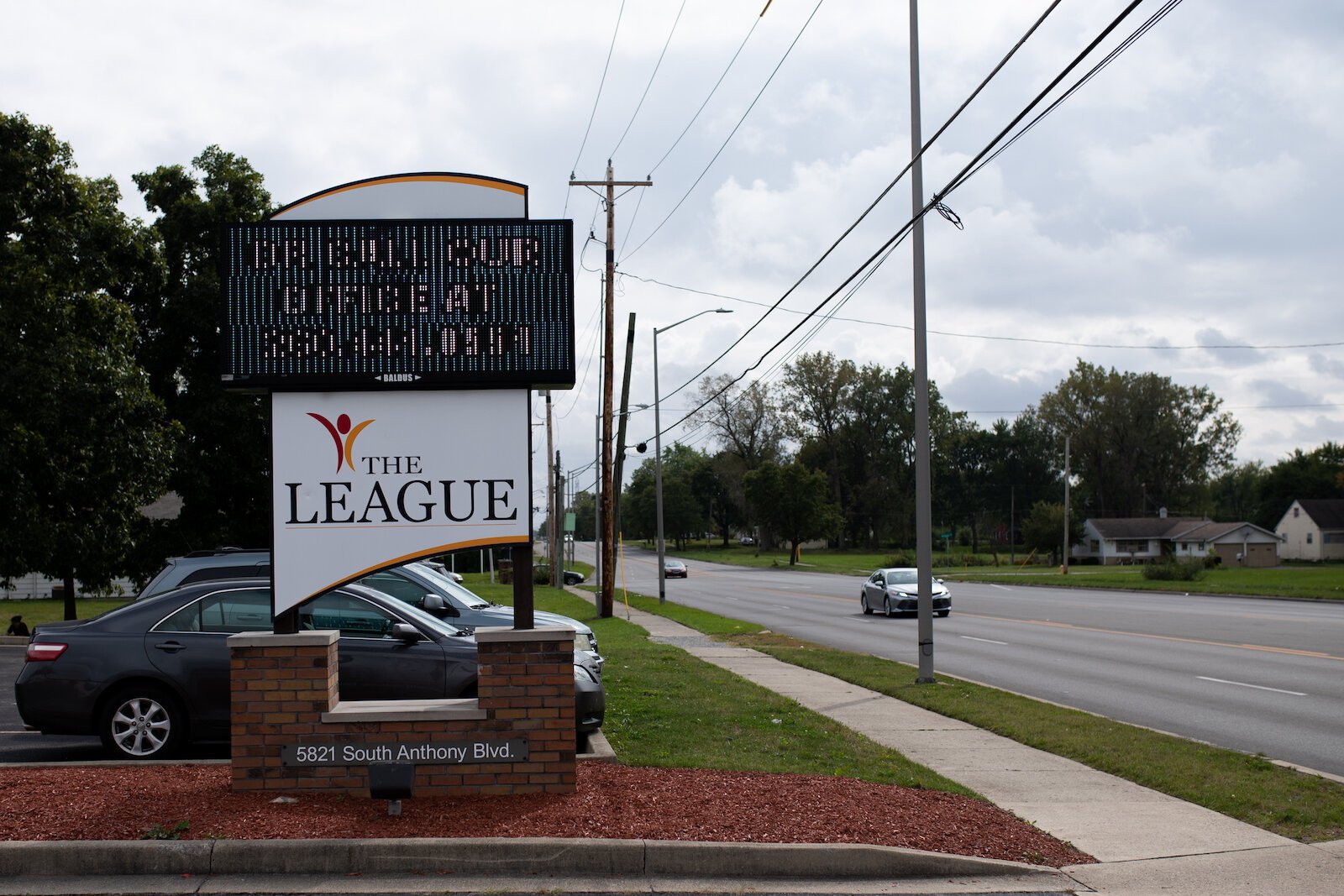 Rose Avenue Education Farm hosts a farmers market every Sunday at the Fort Wayne League for the Blind and Disabled at 5821 S. Anthony Blvd.
Rose Avenue Education Farm hosts a farmers market every Sunday at the Fort Wayne League for the Blind and Disabled at 5821 S. Anthony Blvd.
Along with helping farmers build sustainable careers, Rose Avenue Education Farm also keeps prices highly affordable for consumers at all income levels thanks to a partnership Young has established with Double Up Indiana.
Managed by the St. Joseph Community Health Foundation and supported by the United Way of Allen County, Parkview Health, and the U.S. Department of Agriculture, the Double Up program helps level the health and economic playing fields for low-income families by doubling their buying power on fruits and vegetables at participating farmers markets and grocery stores. Every time a consumer uses their SNAP/EBT card at a participating retailer, the program matches their fruit and vegetable purchases dollar-for-dollar, for up to $20 per day, helping them access up to $40 worth of produce for half the price.
“Our partnership with Double Up is wonderful because folks are getting a great deal on their produce, and they can find culturally specific veggies that are hard to find other places,” Young says. “I’ve swiped EBT cards from Georgia, Pennsylvania, Montana, and Colorado. People from all over the country are buying food grown in Northeast Indiana and taking it home with them.”
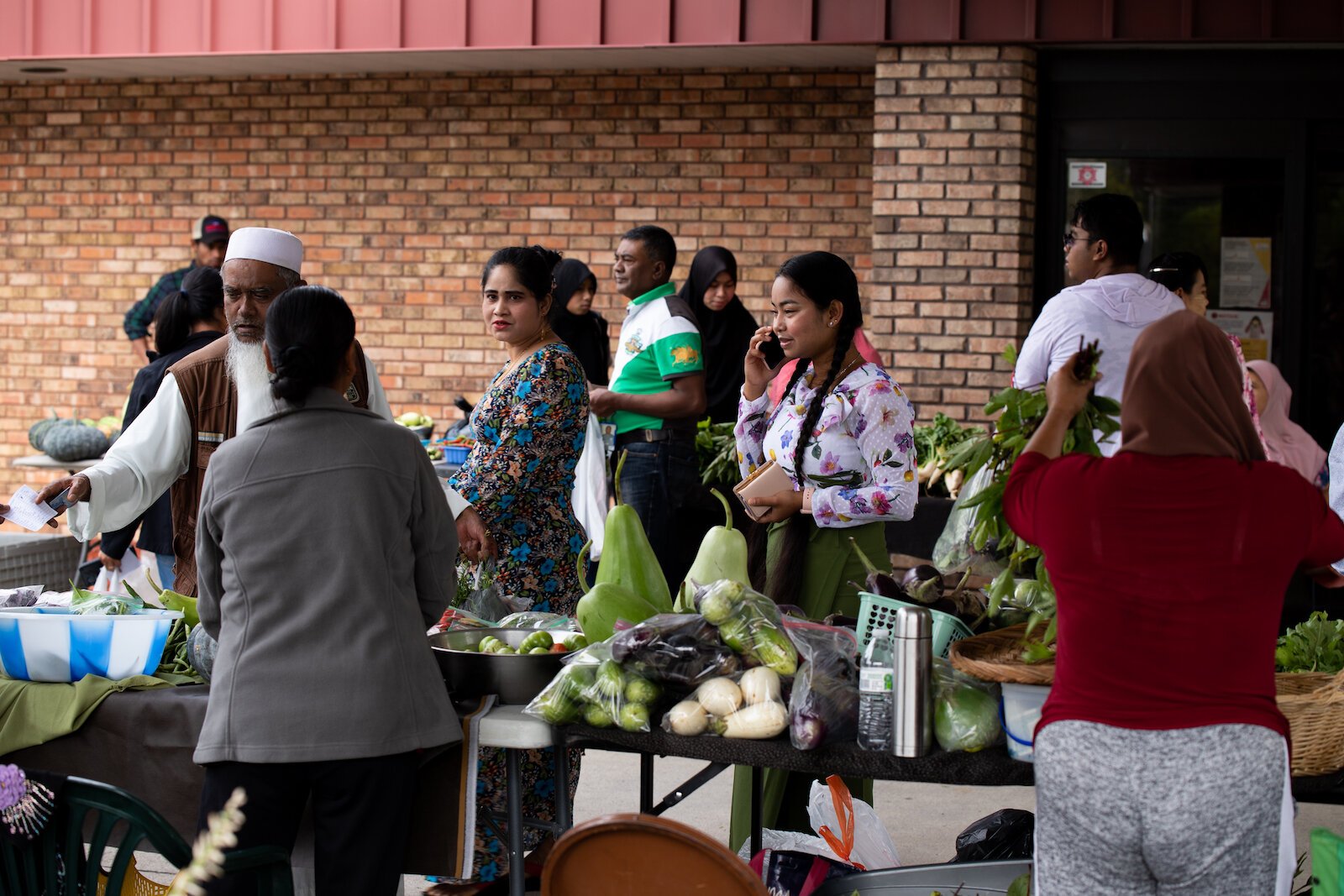 Rose Avenue Education Farm hosts a farmers market every Sunday at the Fort Wayne League for the Blind and Disabled at 5821 S. Anthony Blvd.
Rose Avenue Education Farm hosts a farmers market every Sunday at the Fort Wayne League for the Blind and Disabled at 5821 S. Anthony Blvd.
As Executive Director of the St. Joseph Community Health Foundation, Meg Distler says the Foundation is proud to support Plowshares—not only in the transition to offering Double Up benefits on their produce, but also in their operational expenses for Rose Avenue Education Farm.
“It’s exciting to partner with Plowshares and see the opportunities they are helping to create for immigrant and refugee farmers,” Distler says. “By providing Plowshares a grant to assist with operations, as well as purchase needed equipment, we hope to help build the infrastructure that will make this work sustainable. The addition of Double Up Indiana has also allowed many local residents to access affordable and nutritious produce, too.”
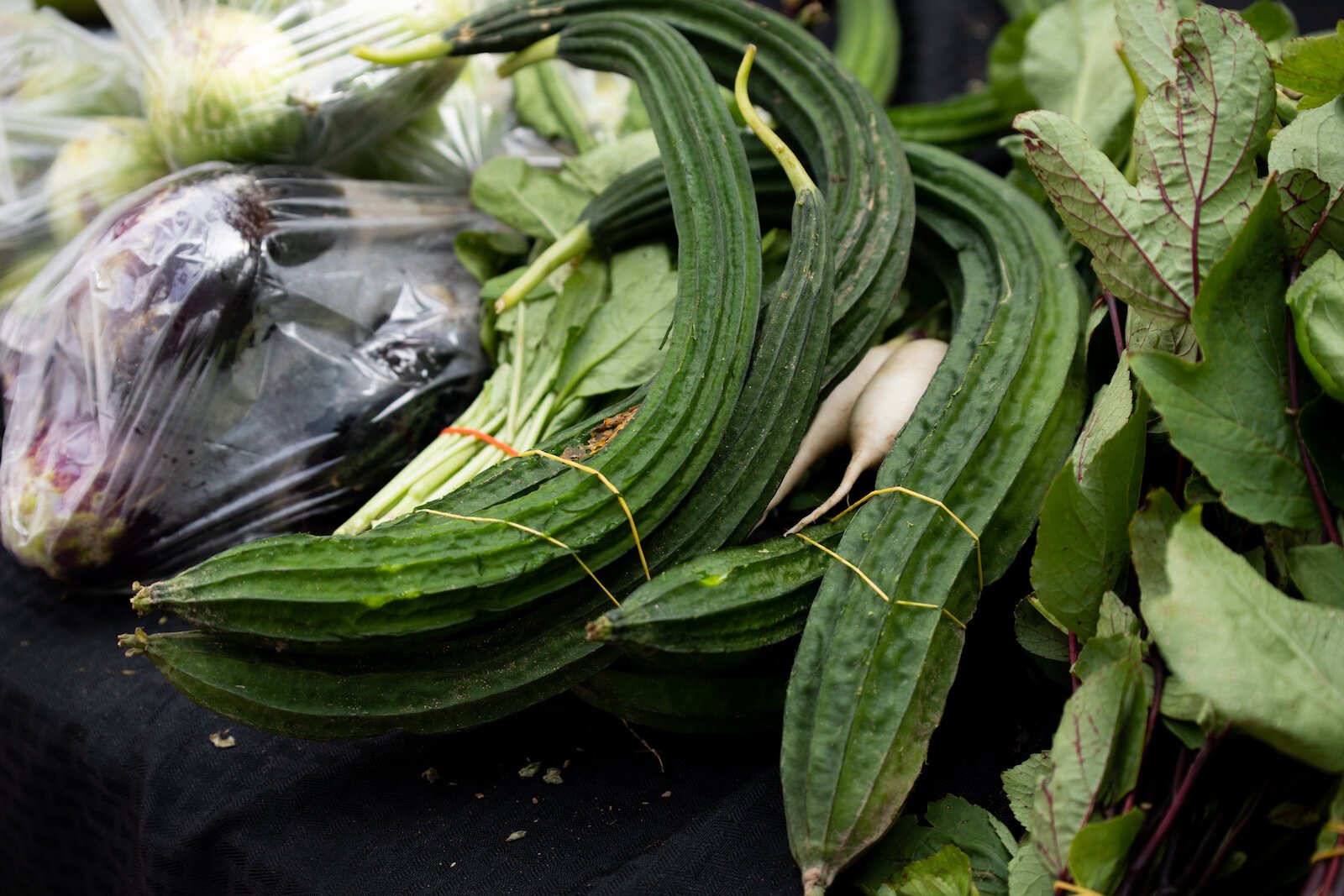 Produce grown by farmers at the Rose Avenue Education Farm.
Produce grown by farmers at the Rose Avenue Education Farm.
While the direct benefits of Rose Farm’s work in Northeast Indiana are many, in Young’s mind, these benefits extend far beyond those who buy and sell at the weekly markets or those who tend the land. As the daughter of the family that launched Fort Wayne’s 3 Rivers Co-Op, she’s committed to rebuilding local food systems in Northeast Indiana as a way to improve the region’s overall health and economy for the future—particularly as food scarcity increases during the COVID-19 pandemic. If cities want to ensure that residents have greater access to food in times of crisis, taking steps to grow and sell more food locally is a place to start.
In 1998, Young’s family started a small nonprofit called Heartland Communities, Inc. to make progress on goals related to worker-empowered economic development and regenerative culture and environment. Now, Young is the Community Economic Development Project Manager for this nonprofit, which allows her to apply for federal grants.
“I had seen my mom disrupt the status quo in diet and health food nutrition,” Young says. “The next step is to bring a food home, so to speak, producing more food locally for local consumption.”
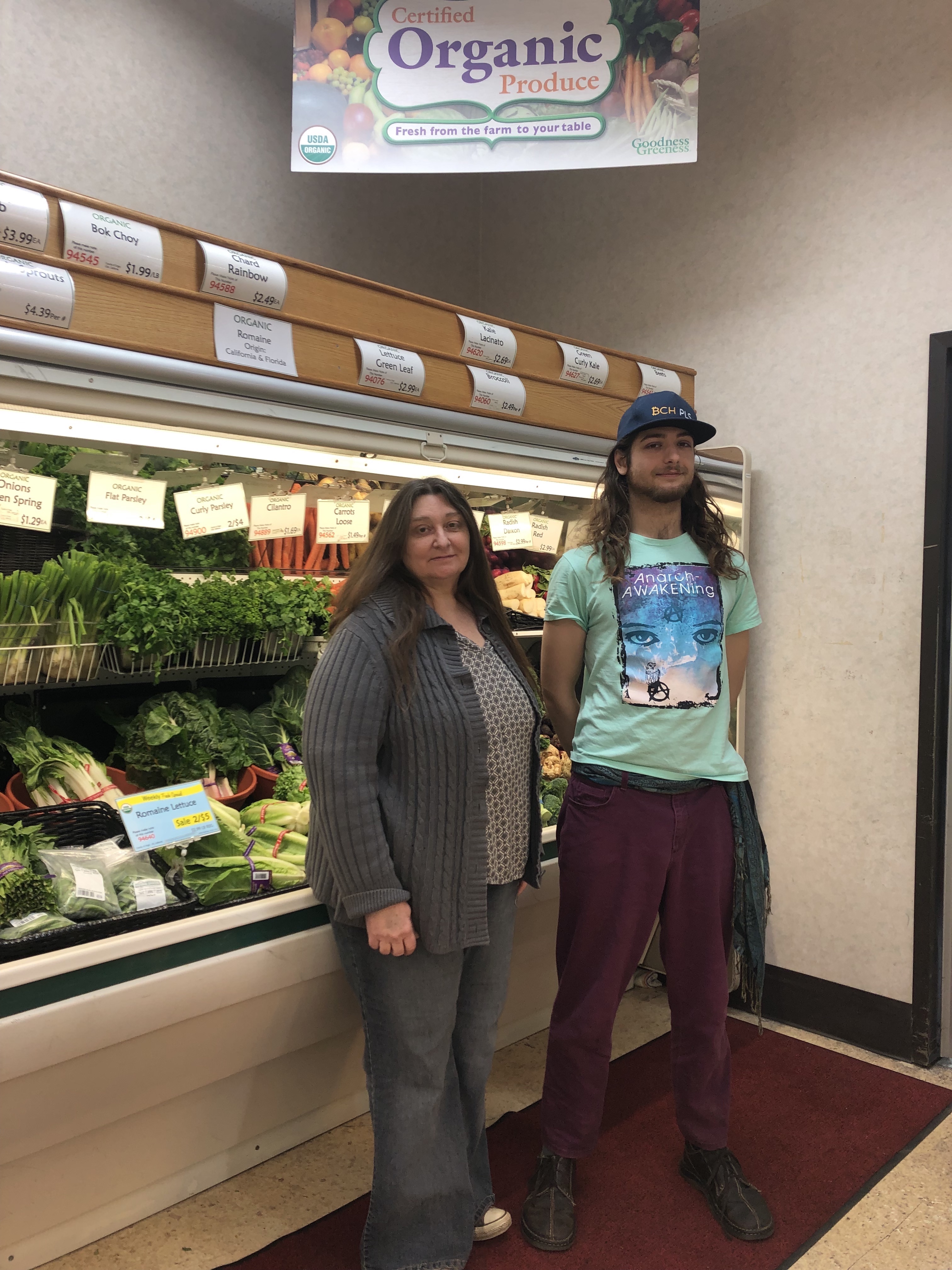 Jain Young and Rowan Greene of Plowshares Cooperative Food Hub.
Jain Young and Rowan Greene of Plowshares Cooperative Food Hub.
While many factors, like food industry infrastructure and political advocacy, will be needed to support the development of robust local food systems in Northeast Indiana, Young and other advocates are focusing on pieces of the puzzle they can influence, like labor. In 2013, she was asked to lead a Food and Jobs committee for the Worker’s Project, which empowers employees to improve their working conditions. In this position, she has been focusing on three goals: 1) Helping farmers get their products to market, 2) Providing greater access to high-quality food in spatially disadvantaged regions, and 3) Creating quality employment opportunities for people who need jobs.
Her concept for Rose Farm grew out of these goals. It was also informed by 2012 research conducted by national food systems expert, Ken Meter, President of the Crossroads Resource Center in Minneapolis, who identified the dilemmas that Indiana faces as it seeks to “feed the world.” Namely, Hoosier consumers rely primarily on imported food, which not only harms the state’s diet and food access, but also the state’s economy.
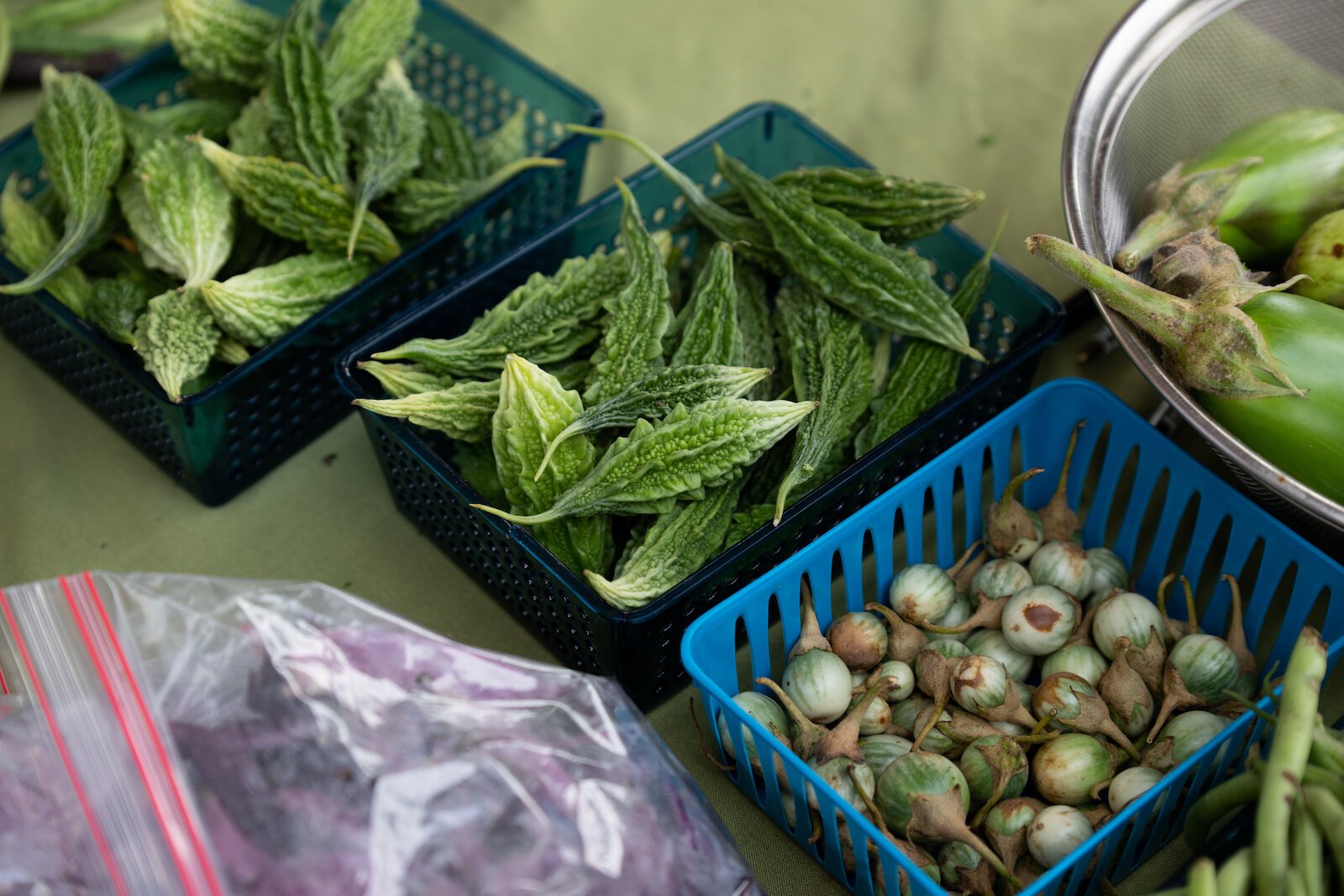 Produce grown by farmers at the Rose Avenue Education Farm.
Produce grown by farmers at the Rose Avenue Education Farm.
Meter found that Hoosiers spend roughly $16 billion per year on food, yet more than 90 percent of these expenditures are going to farmers and producers out of state—even out of the country. When it comes to fruits and vegetables, that figure rises to 98 percent.
Essentially, there is a $14 billion economic opportunity that could be realized if Indiana residents purchased most of their food from farms within the state. Young and other local food advocates want to help Northeast Indiana move toward realizing this goal.
In 2016, Meter conducted a second study, specifically about local food challenges and opportunities in the Northeast Indiana region. In his 2020 book Building Community Food Webs, he writes two chapters about the region based on this research and even features Young’s work. She calls his book “the Bible” for local food advocates.
In his research, Meter draws attention to the important role Northeast Indiana’s immigrant and refugee populations with farming knowledge can play in strengthening its food system. Young’s work with Rose Farm essentially puts this knowledge into practice.
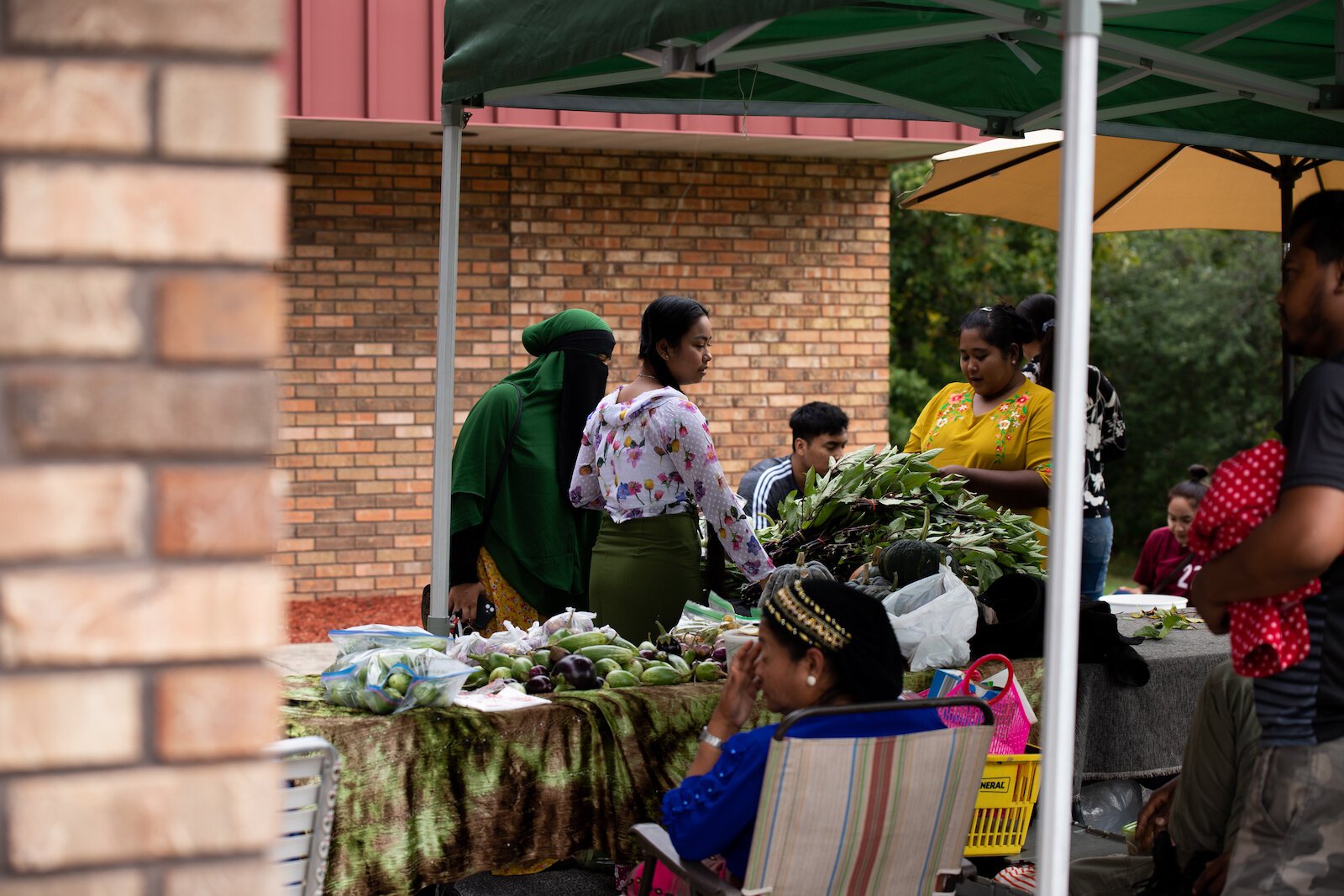 Rose Avenue Education Farm hosts a farmers market every Sunday at the Fort Wayne League for the Blind and Disabled at 5821 S. Anthony Blvd.
Rose Avenue Education Farm hosts a farmers market every Sunday at the Fort Wayne League for the Blind and Disabled at 5821 S. Anthony Blvd.
When she approached a local Burmese Worker’s Circle with the concept back in 2019, the idea was well received in the community.
“The group I talked with kind of went into a huddle and said, ‘Yeah, we’re interested, and we know more people who really want to be farmers,’” Young says.
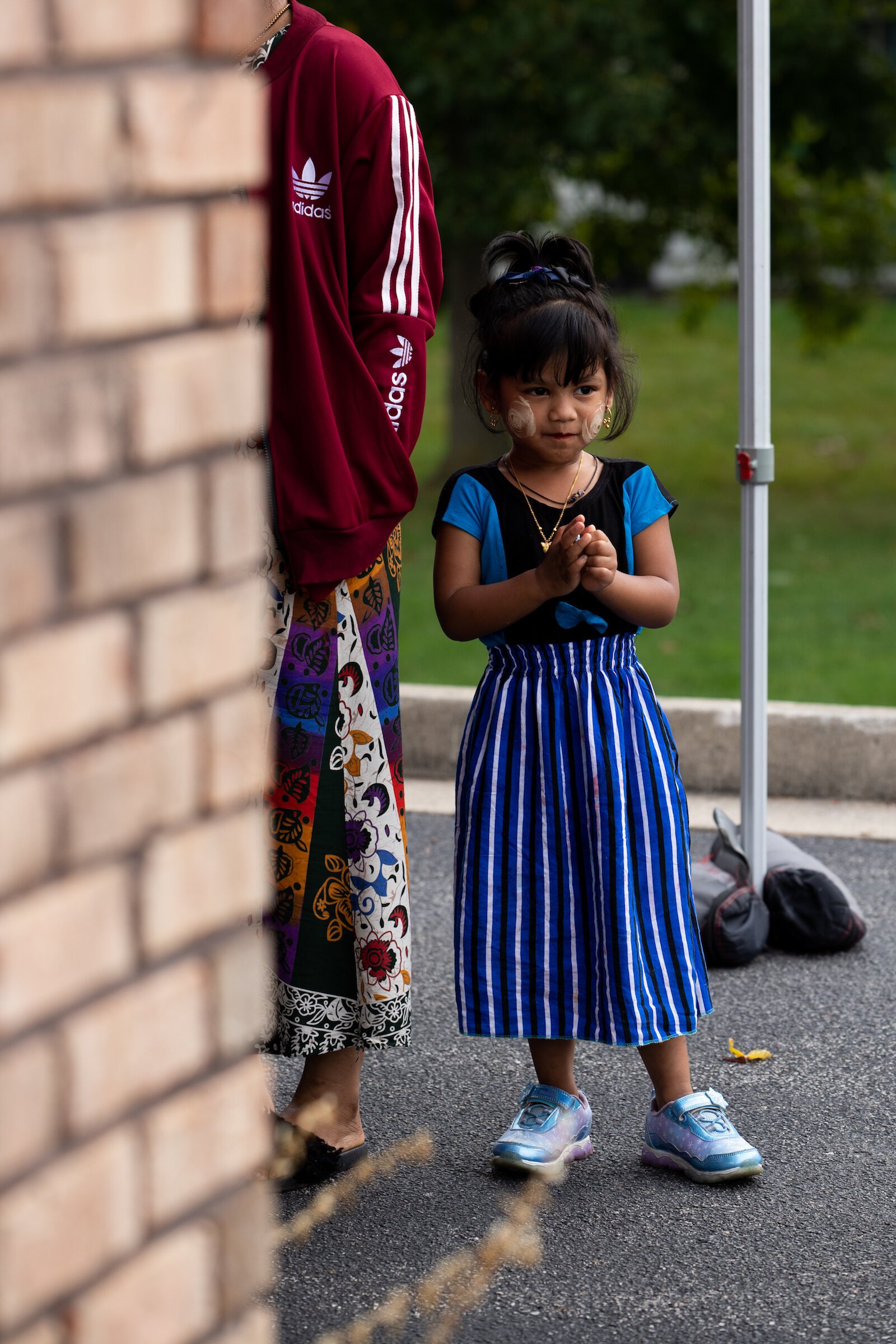 Rose Avenue Education Farm hosts a farmers market every Sunday at the Fort Wayne League for the Blind and Disabled at 5821 S. Anthony Blvd.
Rose Avenue Education Farm hosts a farmers market every Sunday at the Fort Wayne League for the Blind and Disabled at 5821 S. Anthony Blvd.
Once she saw interest from the Burmese community, she applied for and received the grant to bring Rose Farm to life. Today, she works with about 15 Burmese refugee farmers in 10 new farm businesses. In the program’s first two years, two Burmese, among four employees of Plowshares, are going through a horticulture industry certification program, and 20 farmer participants have taken classes equivalent to Master Gardener. More than 50 have taken an all-day course in on-farm food safety.
While the COVID-19 pandemic initially delayed the farm’s first planting season in 2020, they still had an abundant harvest last fall and were able to sell produce at the indoor YLNI Farmers Market until mid-December.
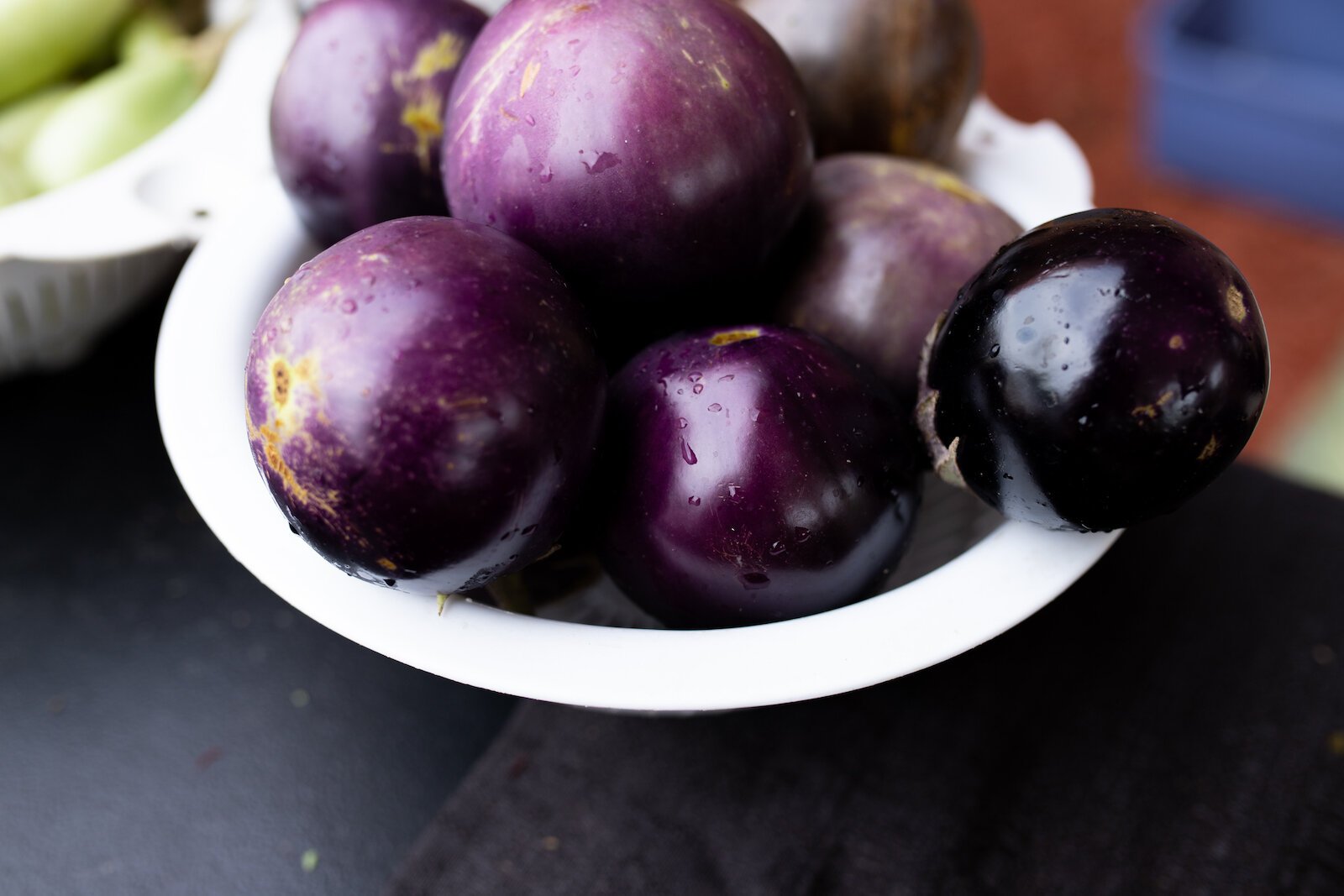 Produce grown by farmers at the Rose Avenue Education Farm.
Produce grown by farmers at the Rose Avenue Education Farm.
This year, they’ve expanded their program with additional crops and learning opportunities.
“We’ve harvested lots of greens—mustard greens, collard greens—kale, sweet corn, lots of varieties of radishes,” Young says. “We’re just starting to get okra, and we have a huge variety of squashes.”
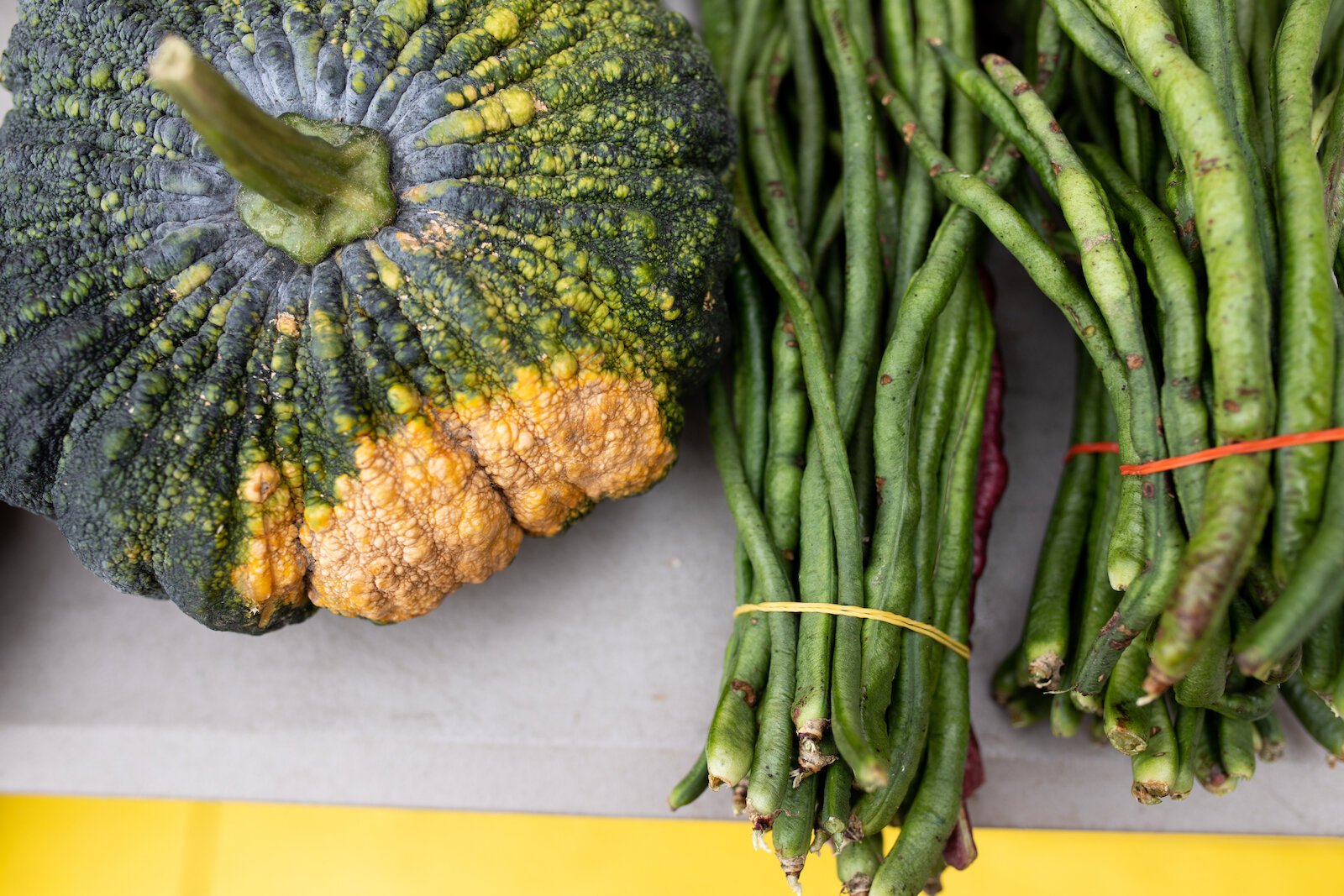 Produce grown by farmers at the Rose Avenue Education Farm.
Produce grown by farmers at the Rose Avenue Education Farm.
While navigating language and cultural barriers can be challenging, Young says it’s all a part of the process of creating a more robust and inclusive local food economy. And regional collaborations, like Double Up, ensure that the benefits of local food extend to buyers at all price points.
Attend a farmers market
Each Sunday until the end of October, the Refugee Incubator Farm of Northeast Indiana at Rose Avenue Education Farm will be hosting a farmers market from 1-6 p.m. at the League for the Blind and Disabled in Fort Wayne at 5821 S. Anthony Blvd.
Starting Oct. 3, they will also be selling at the Indoor YLNI Farmers Market at the historic Aunt Millie’s Perfection Bakery at 350 Pearl St.
